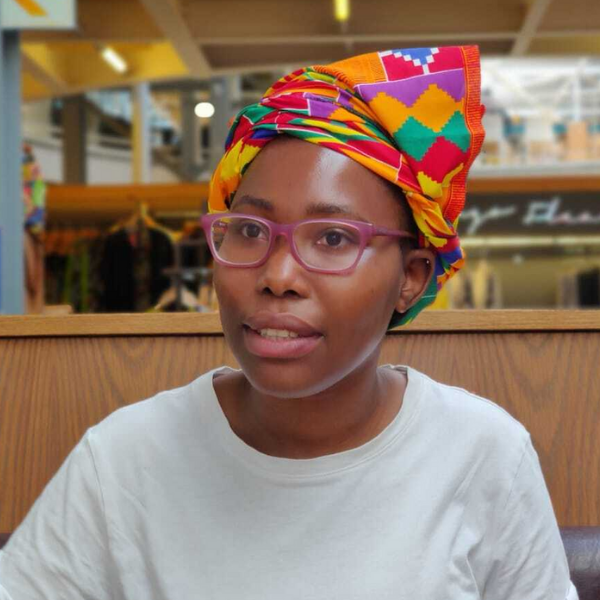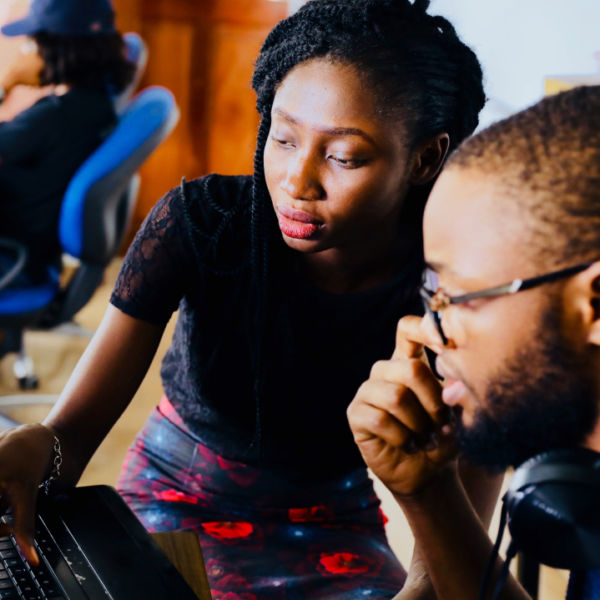A Space for Support and Sharing: Reflecting on Support Squads
Words by Melissa Zisengwe • Sep 1 2022
As a space to share and learn from others who wear similar hats in the field of civic tech, our Support Squads program is a valuable place for our members. Many civic tech organizations are short-staffed or volunteer lead, and are often under-resourced – so being able to tap into a network of others who can pass on their wisdom, resources, and support can be a big help.
Support Squads is a space to mix, connect and learn new things from different local, regional and international organizations from around the world who all do tech-for-good work.
We have four Support Squads for individuals who work in Program Management & Direction, Communications & Marketing, Funding & Partnerships and Product Design roles. Since the beginning of the year, we have planned 10 meetings and successfully hosted 9 gatherings.
We kicked off the year with two meetings for the Fundraising & Partnership and Program Management & Direction squads, focusing on individual giving as well as sharing tips on how staff and volunteers can work best together. Our latest Program Management & Direction meeting featured g0v – Bess Lee joined us and shared ‘how to make civic tech fun’. In this session, Bess shared many ways g0v is making and keeping civic tech fun and interesting. This session prompted rich engagement and was fun in and of itself.
This week, we had a very engaging session for our Funding & Partnerships squad meeting, where we were joined by Laura Chang of Code for Canada. Laura shared all about Code for Canada’s main revenue stream: fee-for-service. She also explored other funding models and encouraged attendees to share their experiences and thoughts on different models.
We have also hosted two sessions for the Communications & Marketing squad. The first meeting focused on sharing tips around documenting success & telling impact stories, and the second featured Janice Scheckter, a digital community advocate. Janice shared successful storytelling techniques, tips and examples for civic tech organizations.
Additionally, we’ve hosted two sessions for our Product Design squad. One focused on techniques for bettering research practices, and the other, entitled ‘Civic tech post-mortems: Breaking apart failures’, featured mySociety, who shared case studies of failures, lessons learned and their process for analyzing failures.
In all these sessions, we aimed to provide an open space for learning and sharing, but also to give our members a sense of community within our international network. The Support Squad sessions’ attendance reflects Code for All’s reach and community; most sessions have been attended by members from Germany, South Africa, Uganda, Mexico, Nigeria, Canada, Singapore, Taiwan, Jamaica, the UK, and Hungary.
10 Quick highlights and reflections
- Our most active and engaged squads are the Product Design group (an excitable one) and the Communications & Marketing squad. They enjoy sharing tips about platforms and storytelling techniques. Perhaps all civic tech organisations are trying to find effective and interesting ways to document their stories.
- Our regular attendees show up for meetings with all four squads, which would indicate that people in the civic tech community do, indeed, wear many hats in their organisations.
- There is a strong willingness to share in every squad. People are willing to share what they know with others, from lessons learned to tips and tools, and they are also eager to listen and learn.
- Sometimes there is room and need for ‘expert advice’. Sessions with topic experts present have more attendance and registrations. So while squad members enjoy learning from each other, there is still room and value in learning from ‘experts’.
- Quick huddles: Our meetings are usually one hour long however we have noticed that sometimes 30 to 45 minutes is enough for the meetings. Occasionally, people come, quickly share tips, engage and go about their day.
- Building relationships: Those who have attended several meetings appear to have built rapport and they usually indicate interest to engage further offline.
- The members are keen to share their needs and ideas on making the support squad meetings more valuable for them.
- There is more engagement when members come with a specific problem about the topic they would like help with – it seems to turn the sessions into an interesting sharing and problem-solving meeting.
- For some of the support squads, (e.g the fundraising and partnerships and program management & direction squads) you have to find specific interesting topics to capture the attention of our community.
- Originally Support Squads was only offered to our member organizations, but we have opened them up to the wider Code for All community, and new members are starting to join the meetings.
Looking ahead: a shift in strategy
We are committed to ensuring a valuable learning space for our community through the Support Squads, so we are always trying to find ways to improve and make them interesting.
In the future, we might implement some changes, which include featuring more speakers and experts from the community, workshops, masterclasses, lightning talks and more.




